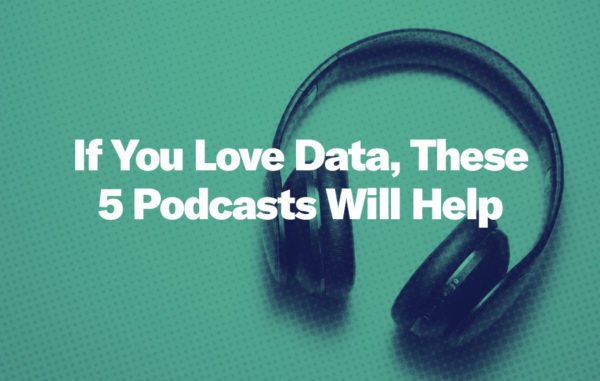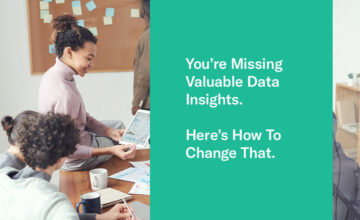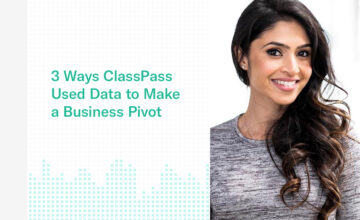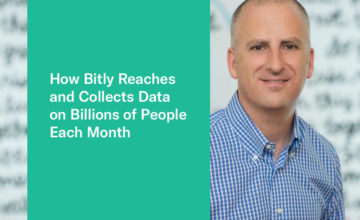Our eyes need rest — so do our brains. Tech professionals who spend their workdays analyzing data, searching for information, learning about processes, writing reports, reading information, and troubleshooting problems are particularly prone to mental fatigue.
The biggest lesson that many of us have learned in the first months of 2020 is that no matter how advanced our society has become due to the availability of technology, we cannot outsmart our physiology. Studies show that people who take 15-minute breaks every few hours end up being more productive. Moreover, some of the best breakthroughs arise when minds have the freedom to wander (and wonder).
So put your laptop down, find a comfortable spot, and get into listening mode. We’ve rounded up some of our favorites to help you level up while doing less, giving your eyes the rest that they need. Whether you are a data professional or a newcomer, you’ll enjoy the following:
Data Stories
Data Stories, run by Enrico Bertini and Mortiz Stefaner, examines and discusses the latest news and developments in data analytics, social computing, ethics, scientific communication, visualization, and other related topics. The podcast is six years old, and the hosts release a new episode each week. Here are a few that we think you might enjoy:
- Data Sculptures with Ardien Segal – An Oakland, California based artist and sculptor shares the process that she follows for sculpture production, her thinking about work in physical vs. digital materials, and the boundaries between art and science.
- Cognitive Science for Data Visualization with Lace Padilla – A UC Merced professor shares how cognitive science can help analysts create better visualizations.
- Data is Personal with Evan Peck – A Bucknell University Assistant Professor shares the results of a study in which 42 people with different educational backgrounds ranked a set of data visualizations.
Linear Digressions
If you are interested in machine learning and data science, then this is the podcast for you. Hosted by Ben Jaffe and Katie Malone, this weekly podcast examines how machine learning is being used to solve a range of problems that were once out of reach. Here are a few episodes to check out:
- Beware of Simple Metrics – This podcast episode takes a step back to examine how well popular metrics solve an underlying problem. You’ll learn why they are popular and what their shortcomings are when it comes to the real world.
- Optimizing for the Short-Term vs. the Long-Term – How do you align the results of an experiment that you’re running for a few weeks, with longer-term objectives that you’re pursuing? This podcast episode shares insight as to how to look at the impact of numbers over longer-term horizons.
- Searching Datasets with Google – Interested in using data to answer a question that makes you curious? This podcast episode will teach you how to use Google Datasets to find the information you’re seeking.
Data Skeptic
This weekly podcast provides perspective and scientific skepticism on topics such as statistics, machine learning, big data, artificial intelligence, and data science. Through long-form interviews with data practitioners and mini recordings that break down technical topics, host Kyle Polich aims to help listeners understand a data-driven world. Here are a few episodes that you might enjoy:
- Neuroimaging and Big Data – Learn how researchers at the Library of Neuroimaging at USC are using data science to study the function of the brain.
- Algorithmic Fairness – Aaron Roth, author of The Ethical Algorithm, shares what technical professionals need to consider when designing algorithms for everyday life.
- The Spread of Fake News – Learn how bots facilitate the spread of disinformation on social networks. This podcast features an interview with Filipo Menczer, a professor of computer science and Informatics builds tools that study the spread of fake news online.
Data Analytics Power Hour
While living in different parts of the world, this trio of friends gets together virtually, twice a month, to share their thoughts on the world of digital analytics, data, and business. Tim Wilson, Moe Kiss, and Michael Helbling, through an open forum on a closed topic, help listeners gain a deeper understanding of data analytics that they can take to work the next day. Check out the following episodes:
- Data Stories with Nancy Duarte – This author of five books has spent the last 31+ years working with the highest performing brands in the world. This episode takes you through a tour of how analytical people communicate.
- Neuroscience, the Customer Experience, and the Data Therin with Diana Lucaci – This episode is all about how the brain responds to the cues you’re leaving online. Learn about EEGs, eye tracking, predictive eye tracking, heart rate monitoring — and why all of these things matter when you’re building digital experiences.
- When the Data Contradicts Conventional Wisdom with Emily Oster – An economics professor at Brown University and bestselling author shares what to do when your evidence doesn’t match conventional wisdom.
The O’Reilly Data Show
Run by Ben Lorica, this weekly 30-minute podcast gives insights, analysis, research and explores the opportunities and techniques driving big data, data science, artificial intelligence, and other emerging data technologies.
- It’s Time for Data Scientists to Collaborate with Researchers in Other Disciplines – As models and algorithms become a part of everyday life, their creators need to expand their worldviews. This conversation with Forough Poursabzi-Sangdeh, a postdoctoral researcher at Microsoft Research New York City, shares insights into his area of focus: explainability and interpretability.
- Why Your Attention Span is Like a Piece of Contested Territory – Social media is changing everything about everyday life from war to politics and business. This episode features an interview with P.W. Singer, a strategist and fellow at the New America Foundation and a contributing editor at Popular Science, and discusses the forces behind social media’s battleground for human minds.
- Data is Only as Valuable as the Decisions It Enables – This episode, featuring an interview with Ion Stoica, a computer science professor at UC Berkeley, discusses how different types of data facilitate different types of decision-making.
Final Thoughts
No matter what curveballs life throws your way, never stop learning. Always explore, keep your mind open, love what you do, and nurture your creative instincts. Every single one of us is the writer of the world’s future narrative. Data is something that you create, sculpt, analyze, and build upon. Rest your mind and keep going.
Contributors Statement
This work was a collaboration between the Indicative team members Caitlin Davidson and Ritika Puri.
Disclosure
The opinions expressed are those of the authors. This material has been prepared for educational purposes only.



